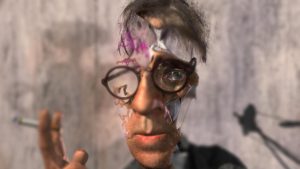U of T researchers are producing work that reaches far outside the walls of the university, making waves in areas ranging from public policy to popular culture to economy, health, climate and more.
It’s precisely for this reason that the President’s Impact Awardswere created in 2017: to honour “individuals who take their research out of the university and have an impact on society,” said Vivek Goel, vice-president of research and innovation at U of T.
Of this year’s five recipients, three are from the Faculty of Arts & Science.
- Professor Karan Singh of the Department of Computer Science specializes in technical innovations in computer graphics, design and animation, and his work has contributed significantly to the development of groundbreaking character and facial animation tools for animated films.
- Professor Jeffrey Rosenthal of the Department of Statistical Sciences has brought awareness of the impact and usefulness of statistics to a wide general audience with popular publications explaining the roles of likelihood and probability in our everyday lives. His work also aims to improve a variety of societal problems through application of statistical analysis.
- Professor Tania Li of the Department of Anthropology has worked to pinpoint fatal flaws in theories of economic development that focus solely on growth. Her rigorously empirical on-the-ground fieldwork in rural areas, particularly in Indonesia, aims to reduce and prevent rural poverty by informing evidence-based solutions for complex development challenges.
What unites these accomplished scholars from vastly different disciplines is their belief in the importance of applying their research to conversations and contexts that stretch far beyond their discipline or the university.
“My work was hard to discuss with people I met at parties,” jokes Rosenthal, whose early research was highly specialized and mathematical.
“I found myself thinking that there must be some way to reach a wider audience, beyond just specialists.”
To his surprise, his first general interest book, Struck By Lightning: the Curious World of Probabilities, became a bestseller and was translated into multiple languages. This led to a slew of media interviews and invitations to speak at non-academic events. But it also led back to fruitful scholarly collaborations across academic disciplines outside of statistics. Rosenthal’s second general interest book, Knock On Wood: Luck, Chance, and the Meaning of Everything, has made quite an impact as well since its publication in 2018.

“Moving outside of my usual academic environment has been very exciting, and has led to all sorts of new projects and activities involving all different kinds of people,” says Rosenthal. “And really, what’s not to love about that?”
Singh echoes Rosenthal’s enthusiasm for breaking down disciplinary boundaries. He advocates for deeper collaboration between the creative arts and technological innovation.
“I have always been inspired by the arts,” says Singh, whose mother is a sculptor. “My research seeks out mathematical formulations of artistic intuition to build digital tools for creative people.”
“I see art and science both as forms of creative expression. Both aim to interpret and explain reality as we know it.”
Singh’s pioneering work on animation software was used in the National Film Board’s short film Ryan, which won an Oscar in 2005. “It was a labour of love for all of us that were involved,” says Singh of the film. “The whole experience was very fulfilling, with or without the Oscar.”

“The research I am attracted to now is increasingly collaborative and interdisciplinary,” says Singh. “It combines art, music, film and theatre to tell compelling stories by using computers and emerging technology like 3D printing or augmented and virtual reality.
“The Impact Award will no doubt aid in furthering this vision, but I hope it will also help me build bridges between amazing researchers in these creative disciplines at U of T.”
Li’s work similarly builds crucial bridges between development scholars, practitioners, advocacy groups and communities all over the world. Over two decades, her work has definitively shaped both research and policy in the fields of transnational farmland investment, food sovereignty, indigenous land rights, labour displacement, rural livelihoods and land grabbing.
Li was recently appointed to the prestigious rank of University Professor.
In addition to the three Arts & Science scholars honoured, the President’s Impact Award winners also include Michael Cusimano, professor in the Department of Surgery at the Faculty of Medicine and an internationally recognized neurosurgeon at St. Michael’s Hospital, and Kamran Khan, associate professor in the Department of Medicine and the Dalla Lana School of Public Health and a clinician-scientist at the Li Ka Shing Knowledge Institute at St. Michael’s Hospital.
Read more about the President’s Impact Award winners at U of T News.

